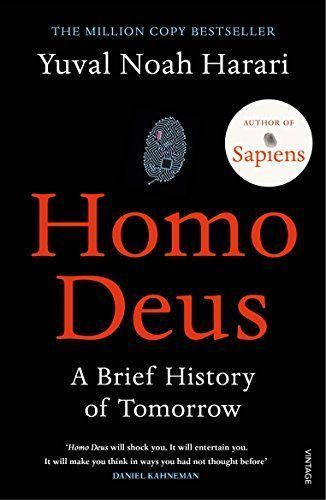
Homo Deus A Brief History of Tomorrow
**THE MILLION COPY BESTSELLER** Sapiens showed us where we came from. In uncertain times, Homo Deus shows us where we’re going. Yuval Noah Harari envisions a near future in which we face a new set of challenges. Homo Deus explores the projects, dreams and nightmares that will shape the twenty-first century and beyond – from overcoming death to creating artificial life. It asks the fundamental questions: how can we protect this fragile world from our own destructive power? And what does our future hold? 'Homo Deus will shock you. It will entertain you. It will make you think in ways you had not thought before’ Daniel Kahneman, bestselling author of Thinking, Fast and Slow
Reviews
Adam Scharf@beethoven89
Gelaine Trinidad@gelaine
Louisa@louisasbookclub
Timeo Williams@timeowilliams
Pierre@pst
S@sjsanc
Brian@briany
hileahrious@hileahrious
Igor@bdsqqq
Eitan Hershkovitz@ehershkovitz
Xin Ma@xym
Wynter@wynter
Haran amorim @haranamorim
Bouke van der Bijl@bouk
Jamieson@jamiesonk
Mykyta Barabanov@mukuta
Nelson Zagalo@nzagalo
Danté@dantenel
Kuba Milcarz@kubamilcarz
Mykyta Barabanov@mukut
Mounir Bashour@bashour
João Maia@joaomaia
Marloes@perfect-solitude
Alexander Lobov@alexlobov
Highlights
Frank Huang@frankhme
Mars F@marsf
Aleksandra House@aleksah
Pratik@pratikaher88
Ang Xuan Yi@cyanyu65
Page 351
Ang Xuan Yi@cyanyu65
Page 139
Ang Xuan Yi@cyanyu65
Piet Terheyden@piet
Piet Terheyden@piet
Piet Terheyden@piet
Piet Terheyden@piet
Piet Terheyden@piet